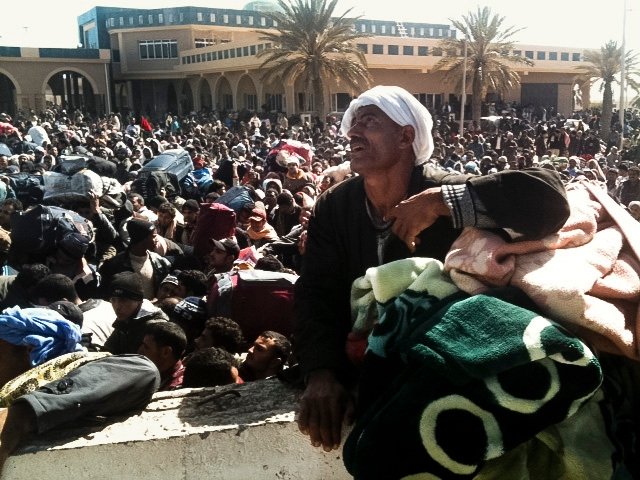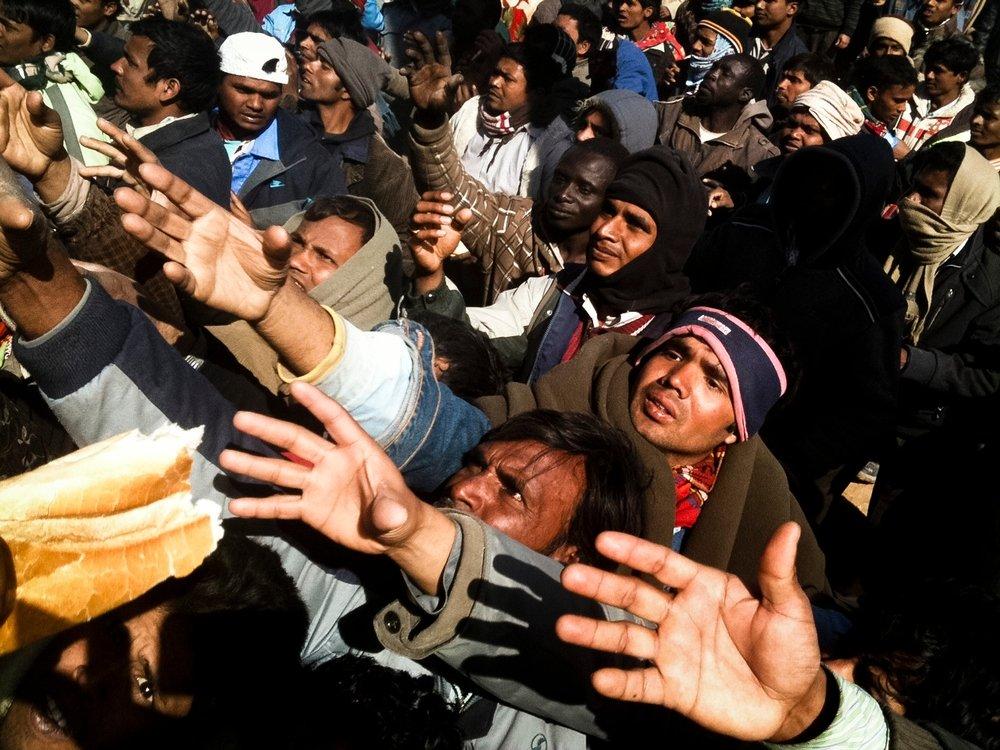
Rome/Brussels —The international medical humanitarian organisation Doctors Without Borders (MSF) today called on Italian authorities to drastically improve living conditions for refugees, asylum seekers, and migrants, particularly for the most vulnerable—women, children, unaccompanied minors, and victims of violence.
Last weekend, 12 boats carrying 2,665 people landed on Italian shores, while an additional 715 people were rescued from another boat off shore. Three quarters of the boats were carrying people fleeing the conflict in Libya. Most were met by an inadequate response by Italian authorities, further compounding their suffering.
"Despite knowing that the number of boats arriving always increases every summer, and that the war in Libya would inevitably force thousands more to flee, the Italian authorities continue to respond in an ad-hoc and wholly inadequate manner," said Rolando Magnano, MSF's head of mission in Italy. “This weekend the authorities even ran out of dry clothes and water for people who arrived in shock and with hypothermia. Hundreds of people were then forced to sleep outside, while hundreds of others were put in overcrowded centers, lying on dirty mattresses without sufficient towels, blankets, or soap. This is clearly unacceptable.”
The arrivals over the weekend added to the more than 27,000 people who had already reached Italy by boat this year. Many were pushed to attempt the dangerous sea journey as a result of uprisings and violence across North Africa since December 2010. The majority of people who arrived in early 2011 were Tunisian, but the number of people arriving from Libya is increasing. The largest landing ever on Italian shores occurred April 19, when 760 people arrived, crammed into a single boat.
The majority of those arriving from Libya are of Ethiopian, Somali, and Eritrean origin, many having already fled violence in their home country. They then fled inhumane detention conditions or extreme violence in Libya.
”Those who arrived from Libya speak of the threats and the violence they experienced—some were shot at, others were beaten or saw their friends die before their eyes,” said Magnano. "Others tell us of horrendous detention conditions there—with 65 people held in one tiny room for a month without water and forced to drink from two toilets to survive. Others have seen relatives drown as they made the perilous journey by sea to reach Italy. Yet, when they arrive, the suffering merely continues. Depression and anxiety increase, with some women telling us they are too afraid to sleep, to change their clothes, or to even go to the toilet because they have not been properly separated from the men."
Last Monday, 1,200 migrants crammed in the CSPA (Centro di Soccorso e Prima Accoglienza) reception center on Lampedusa, which only has capacity for 800 people. Usually, after spending a few days in Lampedusa, migrants and refugees are then transferred to new reception centers throughout Italy, including Kinisia, Manduria, Catalanissetta, and Mineo. According to European standards, Italy has the duty to provide asylum seekers who have experienced violence with priority treatment adapted to their needs, including specialized health care and mental health support. Currently, such measures are completely inadequate.
In addition, there is insufficient separation between men and women, and people receive little information about their rights and legal procedures. Children and unaccompanied minors are kept in closed, prison-like centers. Initial mental health assessments conducted by MSF in the reception centers in April point to the risk of widespread depression, anxiety, and hopelessness, partly as a consequence of living in uncertainty under unacceptable conditions.
"While constant political discussions about the future of migrants and refugees in Europe persist, boats will continue to land and people will continue to suffer unnecessarily. Italy must step up and take its responsibility to ensure adequate, humane reception conditions for people continuing to arrive in distress on its shores,” said Loris De Philippi, MSF operation director.
MSF began providing medical care and mental health support to migrants, refugees, and asylum seekers in Italy in 1999, in response to the crisis in Kosovo. From 2002 to 2009, MSF worked in Lampedusa and Sicily, both common landing points for migrants.
Since February 2011, MSF teams have triaged patients at Lampedusa’s military port and provided medical follow-up services in the island’s reception centers. In addition, MSF has conducted almost 800 medical consultations for migrants and refugees in Lampedusa, and has distributed more than 2,500 hygiene kits and 4,500 blankets.
Download "From -North Africa -to Italy: Seeking refuge, finding suffering"
Find out more about MSF in Libya
